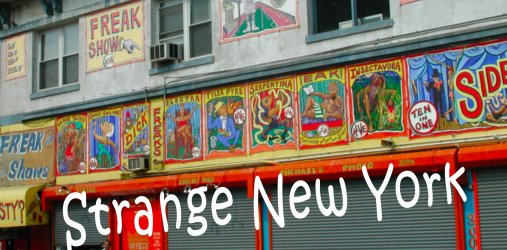Living or dying as one of Andy Warhol’s mascared minions is like acting in adult films; no matter how small a role, you’re always a star. Warhol’s traveling sideshow of transvestites, socialites, actors, and transvestite-socialite-actors embodied heroin chic, New York City’s hipper-than-thou response to San Francisco’s flower child scene. Far from the joyous hippy spirit, Warhol’s circle engendered a cool detachment from Owsley’s day-glow hallucinations, instead fostering a black-and-white world where avant-garde pop filled a room with tin-foil pressed walls, while grainy films about quotidian reality were viewed through amphetamine perspectives. Some of Andy’s children, however, sadly lost their way home when the party ended.
When Freddy Herko dropped out of Julliard School of Music, he began a Greenwich Village troubadour’s wet dream consisting of experimental theatre, speed, and appearing in Andy Warhol films. Herko starred in three of Warhol’s early films, but like many Warhol superstars, he was directionless when his role in Andy’s mythopoesis ended. Herko became increasingly withdrawn, shooting and snorting amphetamine and living with a procession of male and female lovers. Herko’s friend, Johnny Dodd, saw Freddy one afternoon at Joe’s Dinette in Greenwich Village. Herko had been living on the street after getting thrown out of dancer Deborah Lee’s apartment. According to Dodd: “Freddy was covered in filth, and he was dancing on the counter…He said he hadn’t had any drugs for three days, but he was whacked out and his body was quivering.”
Dodd took Freddy back to Dodd’s apartment on 5 Cornelia Street where Herko took a long perfumed bubble bath. Dodd knew that Freddy loved Mozart, so he played the Coronation Mass while Freddy bathed. After his bath, Freddy danced naked around the living room, leaping towards the windows several times. Herko had recently been telling friends that he would soon execute a suicide performance, and Dodd wondered if Freddy was preparing for his final dance: “It was obvious that Freddy had to do it now- the time and place were right, the décor was right, the music was right.” Freddy made a final long run and leaped out of the window to his death.
Playwright and author Robert Heide was part of Warhol’s crowd during Herko’s suicide, and he and Warhol arrived at Cornelia Street a few hours later. Warhol asked him- “When do you think Edie will commit suicide? I hope she lets us know when she’s gonna do it so we can film it.” Warhol was referring to Edie Sedgwick, another Warhol casualty whose possible suicide happened in Santa Barbara seven years later. Sorry, Andy.
Andrea Feldman learned that if you wanted stardom, show up where the glitterati frequent and entertain with a freak show- cum- performance art. Feldman was a fixture at Max’s Kansas City, a Manhattan club that Warhol and company adopted as their round table. Feldman captured attention by shoving a Coke bottle inside her and singing “Everything’s Coming Up Roses.” She called her porno parody of Ethel Merman “Showtime,” a routine Andy Warhol would encourage her to repeat at gallery openings and glamorous parties.
Although Feldman had achieved cult status from her films, her greatest career move was her suicide leap from the fourteenth floor of her parents’ apartment on Fifth Avenue. According to Bob Colacello, the former editor of Warhol’s Interview magazine, Feldman was carrying a can of Coke in one hand and a rosary in the other when she jumped on August 8th, 1972. This was the tenth anniversary of Marilyn Monroe’s death, an actress with whom Andrea had identified herself. Andrea had “apparently made dates for that afternoon with half a dozen guys she had gone out with, including poet and diarist Jim Carroll, so that they would all be down on the sidewalk when she flew out the window.”
Warhol illuminati like Nico, Joe Dallesandro, and the Velvet Underground were able to parlay their talents into successful careers when the final amphetamine rush came crashing down, and it was time to go home. Others like Freddy Herko and Andrea Feldman were lost without Papa Andy, whose genius was his ability to remain detached from his detached crowd, thus insulating himself from misbegotten fatalities when his children’s final fifteen minutes chimed throughout the indifferent streets of New York City.

5 Cornelia Street looking up at the Dodd window

The top right window was the site of Freddy's fatal leap.

The window reflected in a puddle across the street

Grate across the street near where Herko's body may have landed


